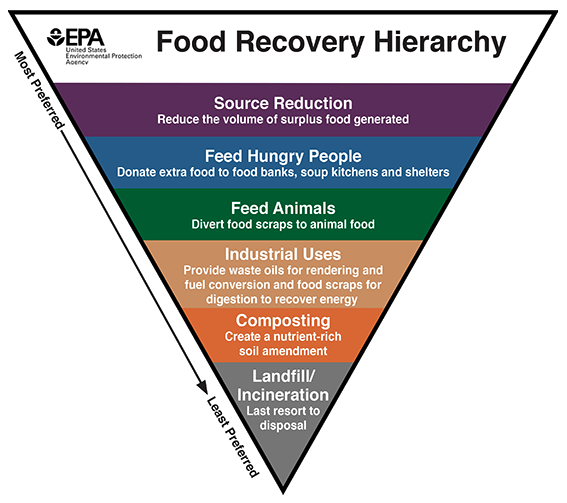Government Initiatives Help Drive Sustainability in the Food Industry

The food sector is a major contributor to the climate crisis, creating a global challenge that requires collective action to tackle. Governments are working to be part of the solution to this pressing problem with programs and policies designed to promote and support sustainability in the food system.
Many of these government sustainability efforts are targeted at reducing food loss and food waste (FLW). The Environmental Protection Agency (EPA) estimates that in 2018 in the United States, more food reached landfills and combustion facilities than any other single material in our everyday trash. With 20% of total U.S. methane emissions coming from landfills, reducing wasted food will play a significant role in helping the nation address climate change.
In the United States, food waste is estimated at between 30–40% of the food supply. An estimated 1.3 billion tons of food is wasted globally each year, representing one third of all food produced for human consumption. According to an article in Bon Appétit, if this food waste was loaded into trucks, these trucks would wrap bumper-to-bumper around the world seven times. 
To turn the tide on food waste and address the food sustainability challenge, the United States Department of Agriculture (USDA) and EPA announced the first ever domestic goal to reduce food loss and waste by 50% by the year 2030.
Government at all levels are implementing strategies to advance this goal. Some of these initiatives include providing tax incentives to support sustainable practices, educating consumers on food waste and behavior change, encouraging food donation, and awarding grants to develop sustainable products from food waste.
For example, the U.S. Department of Energy recently awarded a University of Maryland researcher two grants totaling $6 million to create value-added biofuels and bioplastics from food waste.
Government can’t address the problem of food waste alone. The private sector must do its part. Packaging with a reduced environmental footprint and designed to lock in freshness can help drive sustainability in the food sector and reduce FLW.
CCT created the first aluminum lug EEASY Lid, opening the jar lid market up to more sustainable options for manufacturers and grocers all over the world to help brands improve their sustainability efforts.